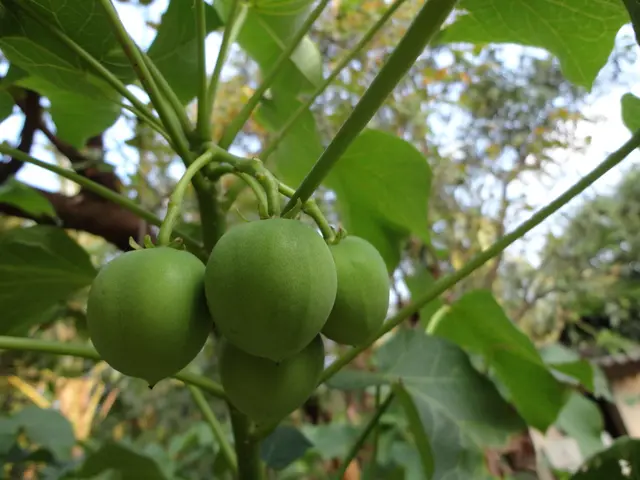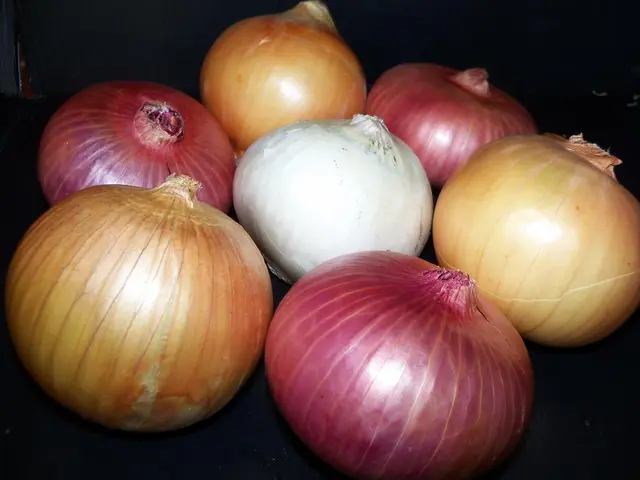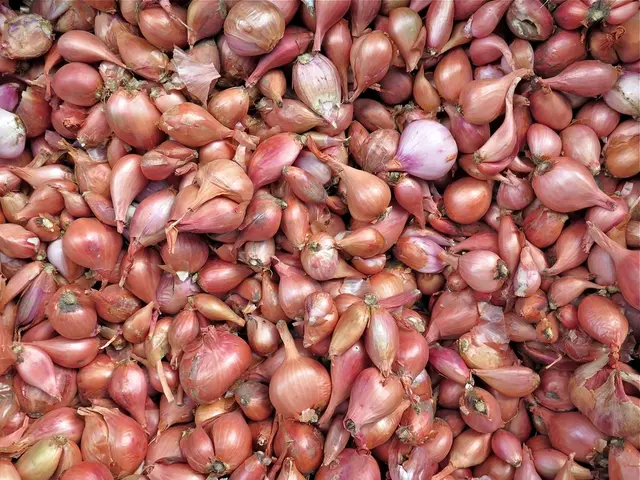Utilizing Fallen Leaves for Composting, Mulching, and Other Applications
Leaves Don't Have to End Up in the Landfill: Discover the Multiple Benefits of Using Fallen Leaves in Your Garden
Have you been sending your autumn leaves to the landfill instead of harnessing their benefits for your garden? Before you rake all your fallen leaves this fall, consider the numerous advantages they offer for your garden.
From improving soil health to providing a habitat for earthworms, here's why shredded leaves are an invaluable resource for your garden.
Soil Enrichment and Conditioning
Organic matter in shredded leaves promotes healthy crop growth. The leaves also help to condition the soil, particularly clay, rocky, or sandy soil. Over time, shredded leaves can alter the texture and structure of the soil, improving its overall composition and promoting maximum growing benefits.
Micro Nutrients and More
Leaf litter contains small amounts of essential plant nutrients like calcium, magnesium, phosphorus, potassium, and boron. While not a significant source of macronutrients like nitrogen, potassium, and phosphorus needed by most crops, these nutrients contribute to soil fertility. Additionally, leaf litter provides important micronutrients essential for plant growth.
Mimicking Nature for a Healthier Garden
Embracing fallen leaves in your garden allows plants to achieve their natural growth patterns. Fallen leaves can take up to six months to decompose, ensuring they are ready to enrich the soil in the spring for planting. Shredded leaves also make an excellent cover for moths and butterflies during the colder months.
Utilizing Fallen Leaves in Your Garden
Applying fallen leaves in your garden is not only beneficial but also economical. Shredded leaves can be used through various methods, including composting, direct application, turning into leaf mold, or using as mulch.
Composting Fallen Leaves
To speed up the decomposition process in a compost pile, it's essential to balance the high carbon content of shredded leaves with nitrogen-rich materials. Layer shredded leaves with nitrogen sources, such as grass clippings, fresh manure, or kitchen scraps, and occasionally stir the pile to introduce air.
Creating Leaf Mold
Leaf mold is the partially decomposed form of leaves, produced through a fungal decomposition process. To create leaf mold, gather shredded or whole leaves and keep them moist in bags, containers, or wire mesh cages. Over time, the fungi will break down the leaves, turning them into a rich soil amendment.
Direct Application in the Garden
Shredded leaves can be added directly to the soil for a quick soil improvement. Shredding the leaves helps speed their breakdown, preventing them from packing down and smothering your plants.
Shredding Leaves
To shred leaves, use a lawnmower with a mulching blade, a bagger attachment, a leaf shredder, or a weed eater. A leaf shredder is a worthwhile investment that pays for itself in saved mulch costs.
Other Considerations
While utilizing shredded leaves is an effective way to enrich your soil and save money, a few additional factors should be considered. Oak leaves have a slightly acidic pH, but this should not significantly impact your soil's pH.
Black walnut leaves may not be suitable for all garden plants, as they can inhibit the growth of some crops, such as asparagus, eggplant, cabbage, pepper, potato, rhubarb, tomato, apple, blackberry, blueberry, and pear. If you have these crops in your garden, you may want to avoid using shredded black walnut leaves for precautionary reasons.
Conclusion
From enriching your soil with essential nutrients to providing a natural cover for your crops, fallen leaves offer numerous benefits for your garden. By incorporating shredded leaves into compost piles, creating leaf mold, using them directly in your garden, or applying them as mulch, you're making a positive impact on your garden's health and saving money.
Incorporating the use of shredded leaves in your garden can harness numerous benefits by improving soil health and enriching it with essential nutrients. Shredded leaves are a valuable resource for home-and-garden lifestyles as they promote healthy crop growth and condition the soil, particularly clay, rocky, or sandy soil. You can utilize fallen leaves in various ways, such as composting, creating leaf mold, or applying them directly to the soil. Embracing this gardening practice allows you to mimic nature for a healthier and more sustainable garden lifestyle.








